PioSolver Course - Endboss Package
Everything you need to know about PIO-
No Previous Experience/Knowledge Required
-
Learn How to Use The Most Advanced and Powerful Features
-
6h of Material, inc feature guide, HH analysis
PLUS bonus Mental Game Series
Blockers in 20m
Learn when to make the big move-
Learn How Blockers Affect Your Folding, Calling and Bluffing Decisions
-
17 Rapid Fire HH analyses
-
Make Smarter Decisions, Play Better =>
Crush Your Opponents

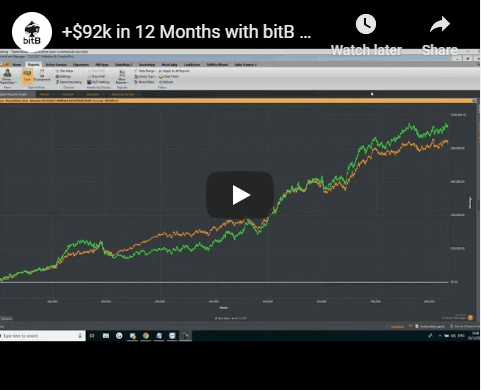
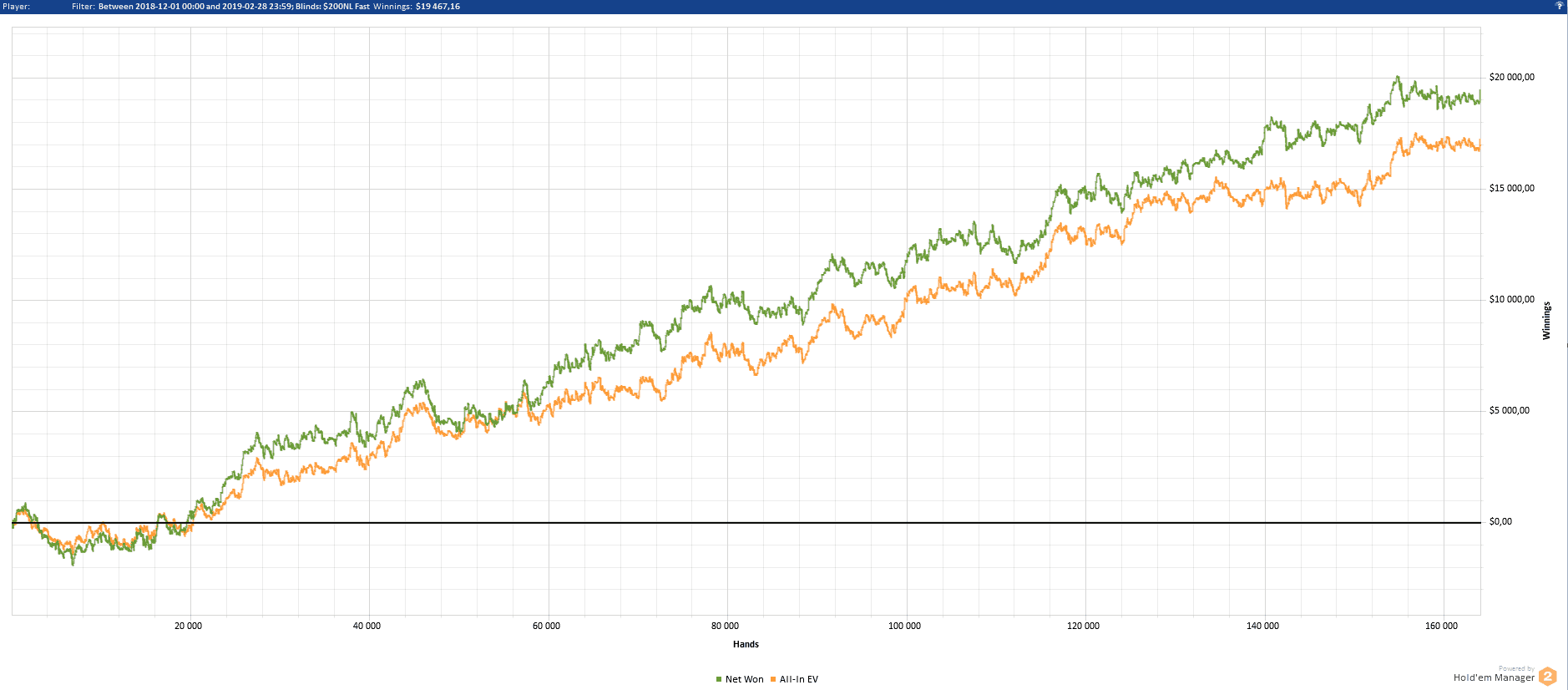
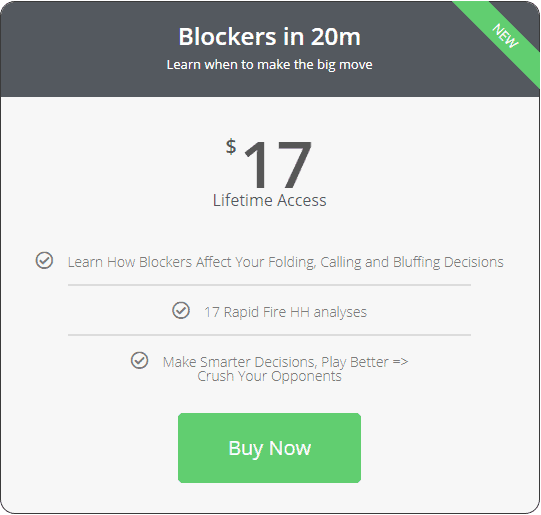
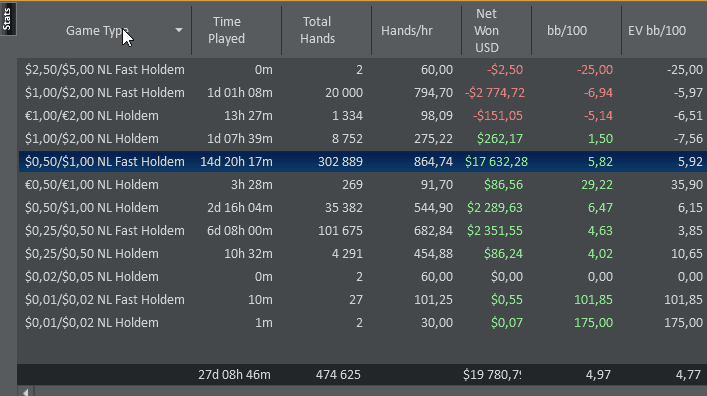
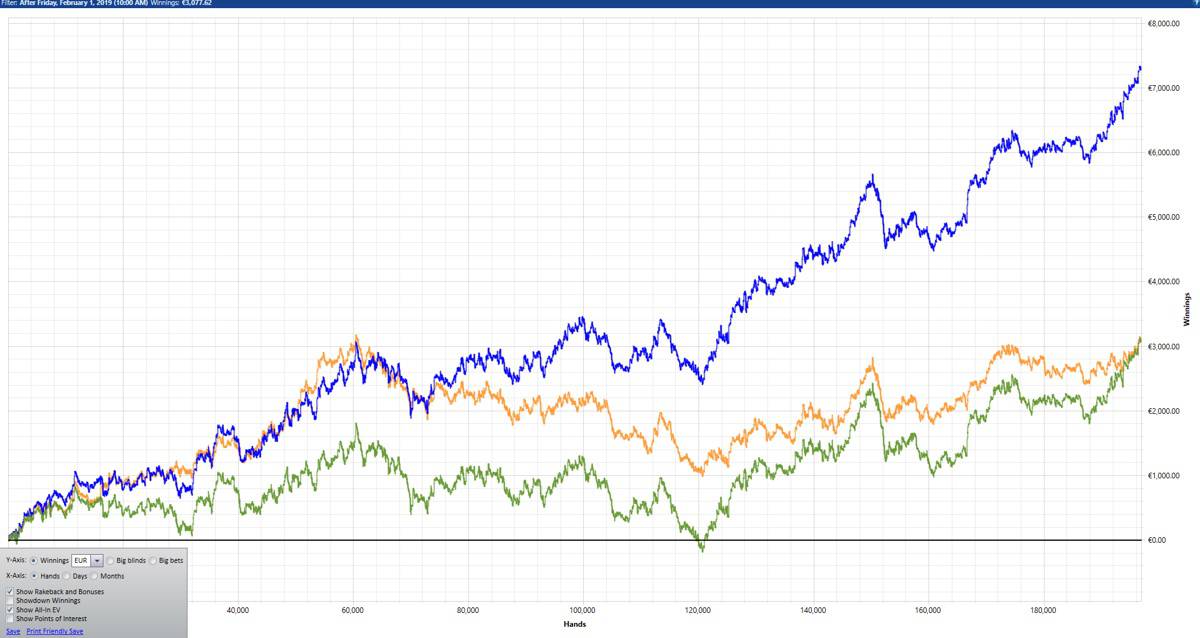
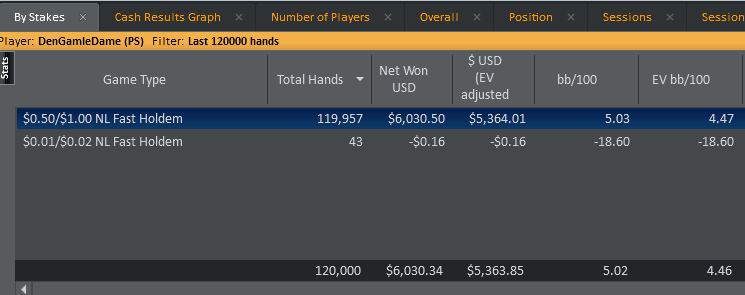

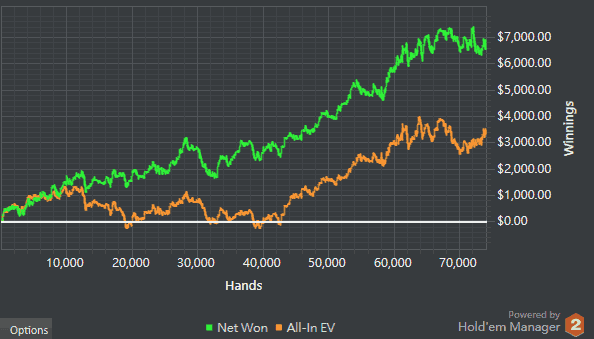
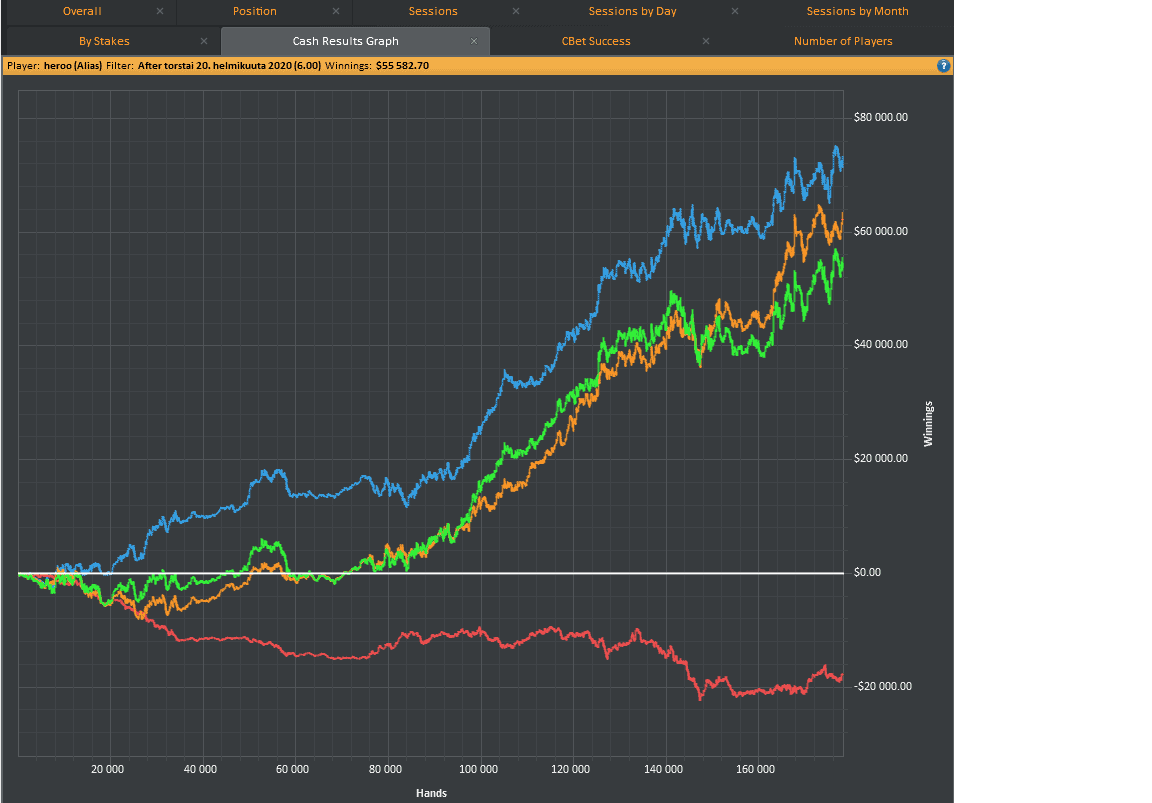

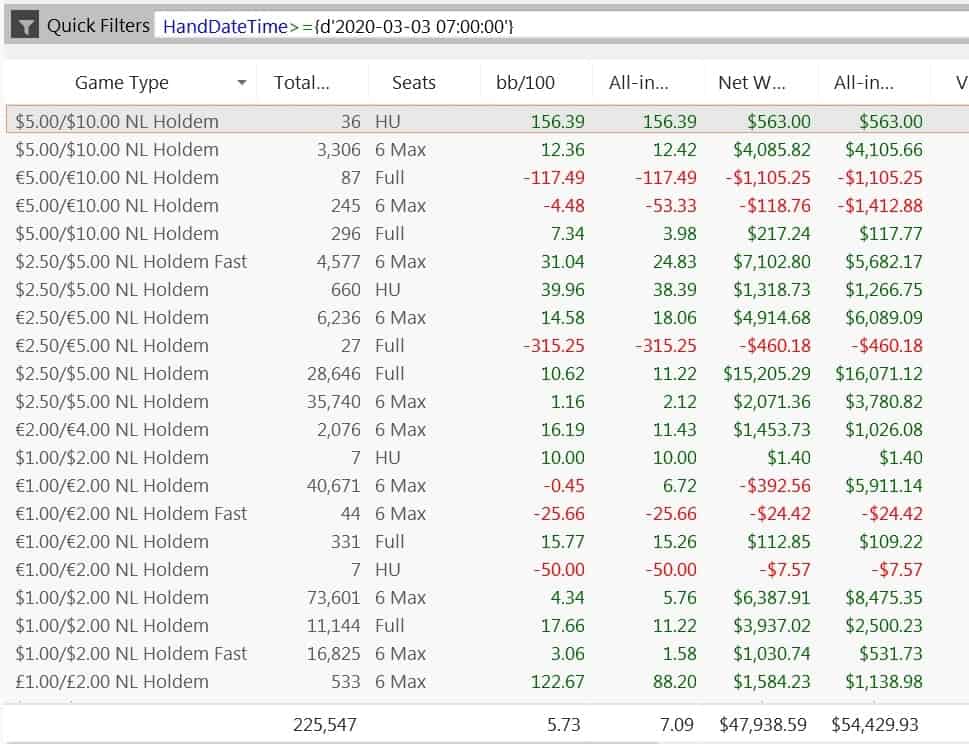
Building a Poker Bankroll From Scratch - Zero to One, Getting Started in Poker
Welcome to Part 1 of my new article series on building a poker bankroll. My goal with this series is to take you through everything you should know to help you build a poker bankroll from scratch. Today we’re going to start at the very start – let’s say you’ve got a day job and some dreams of making some extra income playing poker, or even one day going pro, why should you bother playing baby stakes when you can just grind your job and over time, deposit enough to play the games you want to play? What will you learn playing the donkeys at 2nl, surely you’ll improve faster jumping straight into a tougher/higher game?
Don’t Be The Sucker
If you’ve read my article on the 6 Best Poker Books in 2019, you’ll know that I’m a big fan of the ideas of Nassim Nicolas Taleb (of ‘The Black Swan’ fame) and his no-nonsense ideas about probability and risk taking. One of the main themes of his books is the sucker/non-sucker distinction – basically in life you need to avoid being the sucker at all costs. In his career as a trader, he noted that all the non-suckers (I.e. those who weren’t blown up in times of crises) insisted on ‘playing with house money’, and focussed on long-term survival more than anything else.
This should absolutely be you when you’re starting out in poker.
If you make a substantial deposit on a poker site (even if you can afford it), you set yourself up to be the sucker – the guy who loses it quickly and learns very little in the process. When you’re grinding the nanostakes, you might not be testing your technical game versus the greatest minds the world has to offer, but you will learn the vitally important meta skills required to survive and thrive in the uncertain world of poker.
Discipline
You will see some crazy stuff probably every day you play for pennies. People will shove all in with random holdings, your aces will get cracked in more ways than you can imagine and you’ll witness micro-scale blowups on a daily basis. If you have a profitable future in the game, you will need to navigate this sea of chaos while staying as calm as possible – this is the foundation of your mental game, and believe me it’s easier to cultivate while winning and losing pennies as opposed to thousands.
Obviously, to succeed in the long run you’ll also need to show fiscal discipline – i.e. the ability to stick to your bankroll management plan. It somewhat depends on your characteristics/temperament, but again it’s generally true that if you can’t manage a small bankroll, you certainly can’t manage a big one. I’m going to expand on the foundations of bankroll management in part 2 of this series, so I’ll leave this thought right here for now.
Plenty Fish in the Sea
The desire to play against stronger players seems to me an admirable one, and it is true that proportionally far more of the player pool at microstakes will be very weak players, but that’s not to say there isn’t a lot to be learned from beating up on these guys.
Every fish is different, but there is a certain clustering effect. Generally, fish will either be tight/passive (i.e. never bluff, never call down less than top pair, raise only nutted hands) or aggro (i.e. bluff any hand that doesn’t win, assumes everyone is always trying to bluff). These fish tend to play the same at any stake level, even if they show up slightly less often in bigger games (for obvious reasons!). So, while you’re building your bankroll in the smallest games, pay attention to what these different player types do and don’t do. In the modern era of the game, everyone is worried about squeezing our another 1% of the pot from a perfect opponent and so spends a bunch of time studying with solvers, however properly maximising your EV vs weaker players is arguably more important to your overall winrate. A lot of this simply comes down to experience – how do players like this normally react after winning/losing a big pot? And therefore how thin can I bet for value in this spot, how should I change my play with the range of hands I’d normally bluff? If I’ve not yet got an information on this player, how do I adjust to the fact he’s playing full ring, from Canada and sitting on a broken stack? These valuable skills and heuristics can be learned from day 1 via experience at the poker tables, at any level. I actually know of one very high stakes regular who reportedly takes monthly trips to his local casino, solely to talk with the fishy players there and better understand how they think about different spots – this shows just how valuable it can be to play with bad players and get inside their heads.
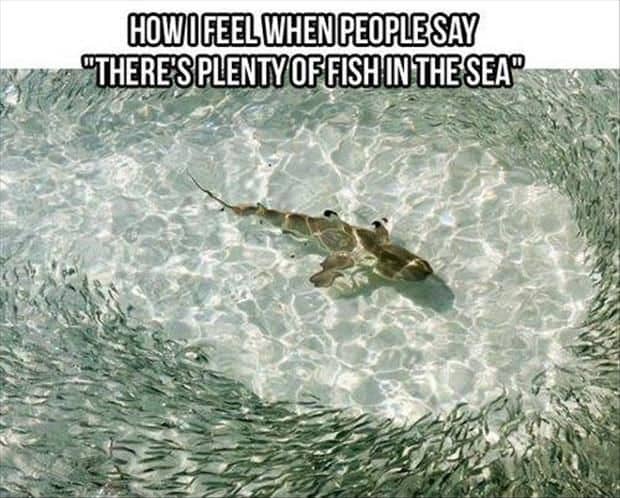
Bottom Line – Your Skills Are More Valuable Than Your Bankroll
A $50 bankroll in the hands of a very skillful player, given the addition of some time, is worth an enormous amount of money. A $5,000 bankroll in the hands of a very weak player plus some time is worth almost exactly $0. Though you may well believe you are an exception, the vast majority of online poker players lose money (for reasons we’ll get into in part 3 of this series), especially newer players. I’d say the most advantageous conditions for building a bankroll are when the player doesn’t have a choice – they need to start from freerolls or the nanostakes because they’re too broke to afford a deposit. But if you can afford a meaningful deposit and you’re thinking about it, my advice is not to make it. Deposit a tiny amount, spend most of your time learning the game and slowly build it up. Building in this way, your downside is strictly limited to something small, while your upside, given time and dedication, is sky high.
My Own Experience
When I started out playing online, I was in my second year of university and flat broke. I deposited the minimum amount ($10) on pokerstars perhaps 3 or 4 times before I was extremely lucky to buy ‘The Mathematics of Poker’ and learn the fundamentals of bankroll management. Once I had this foundation in place, I knew I had the structure to actually make some money from the game and told everyone I knew I was going to turn the $10 in my account into $1,000. It took me about 6 months, with numerous heartbreaks along the way, but in the end far more valuable than the money were the skills I learned, which ultimately allowed me to go on and make my career in the game.
I hope you enjoyed part 1 of this new series, in part 2 we’re going to get into the guts of perhaps the least glamorous, but certainly one of the most important meta-skills in – poker bankroll management.
GL out there!
D7
PioSolver Course - Endboss Package
Everything you need to know about PIO-
No Previous Experience/Knowledge Required
-
Learn How to Use The Most Advanced and Powerful Features
-
6h of Material, inc feature guide, HH analysis
PLUS bonus Mental Game Series
Blockers in 20m
Learn when to make the big move-
Learn How Blockers Affect Your Folding, Calling and Bluffing Decisions
-
17 Rapid Fire HH analyses
-
Make Smarter Decisions, Play Better =>
Crush Your Opponents












